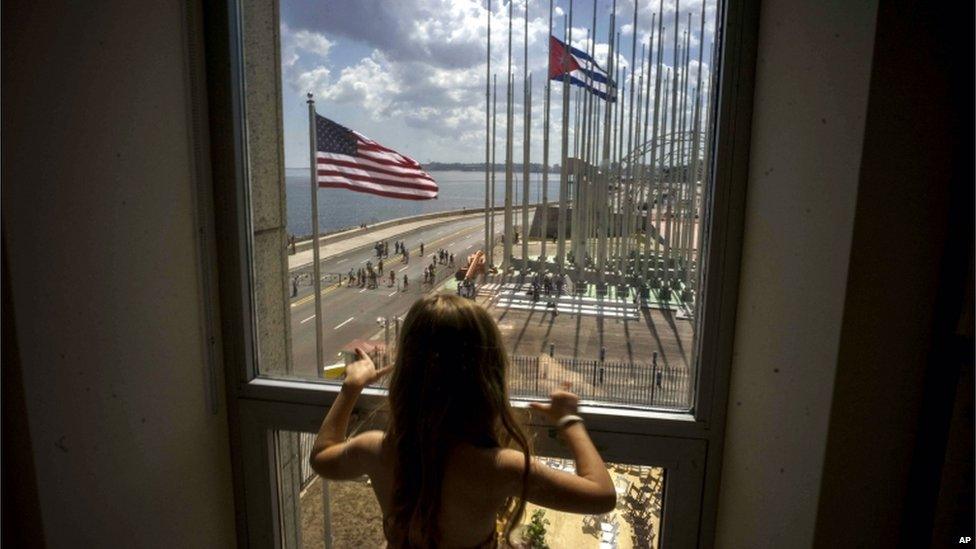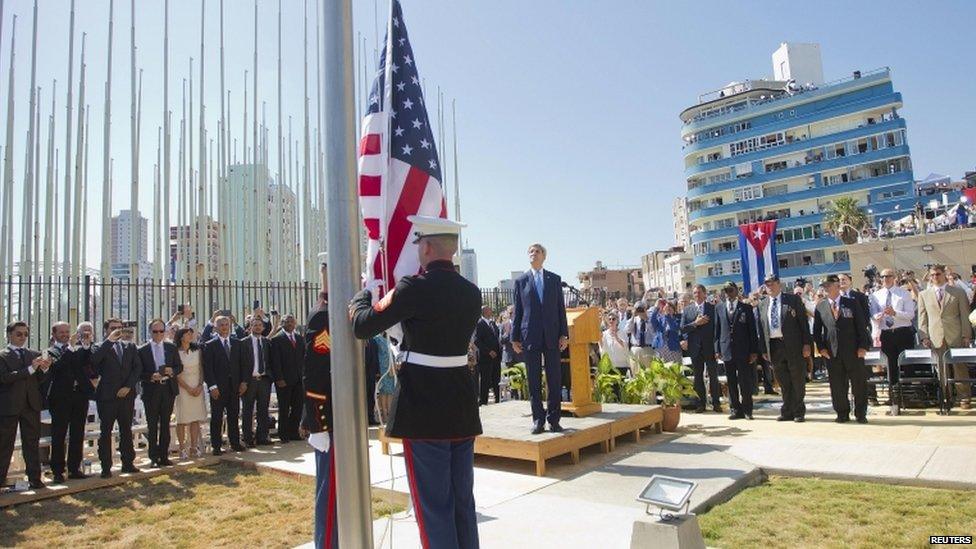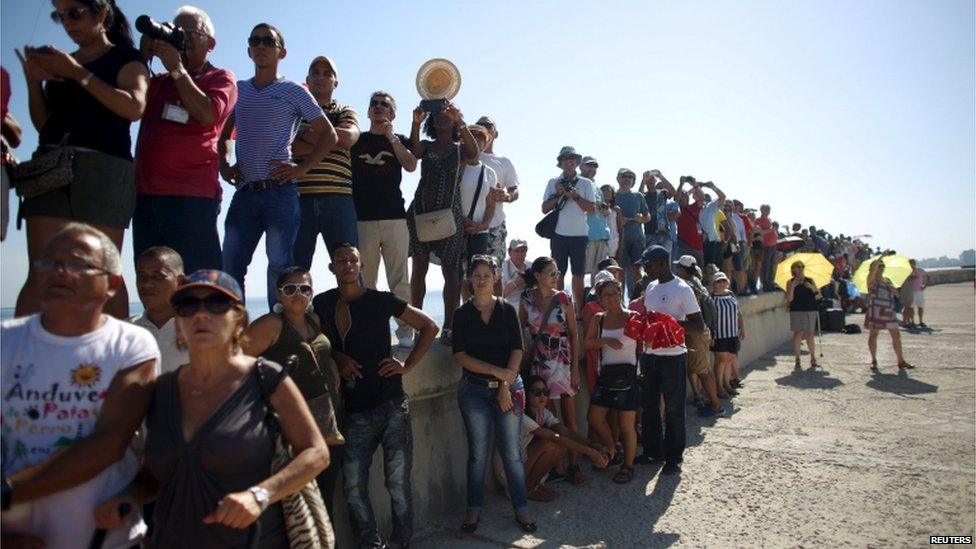End of a bitter chapter in US-Cuba relations
- Published

It was a typical hot summer's morning in Havana - humid and sticky. But in a sense, the warmth was befitting to the moment in which Cuba and the United States finally came in from the cold.
From our vantage point, above the front lawn of the new US embassy, we watched the dignitaries gather as the US military band began to play, the sea breeze off the Malecon, Havana's iconic waterfront promenade, taking the edge off the heat.
A year ago, many of the diplomats present could hardly have imagined seeing the Stars and Stripes flying again over Havana so soon. Many millions of ordinary Cubans watching on television at home probably thought they'd never see it in their lifetime.
For those of us in the international media, gathered on a rooftop recording the event, it felt like history unfolding in front of us, almost six decades of Cold War being consigned to the past.
The man tasked with capturing the emotional tug of the moment for so many Cuban-Americans was Richard Blanco, Mr Obama's inaugural presidential poet. His voiced cracked at times as he recited his poem, "Matters of the Sea", particularly when he spoke of his grandparents.

Mr Kerry said he believed the next US president - whether Democrat or Republican - would continue to engage with Cuba
One imagined scores of other people whose identities have been split by this fractious political relationship, who are both Cuban and American, yet neither fully American nor Cuban, wiped away a tear too.
When Mr Kerry spoke, he didn't shy away from making reference to some of the most notorious episodes in their troubled bilateral past: the Bay of Pigs, the Cuban Missile crisis.
But the tone was conciliatory and the thrust of his message was simple. From here on, he hoped, the United States and Cuba could start to treat each other "not as enemies, but as neighbours".
After the event, he held talks with his Cuban counterpart, Bruno Rodriguez. The two men announced a joint commission to deal with their "immediate and long term bilateral issues" which includes the eternal sticking point of the US economic embargo.
Mr Kerry said he was confident that whoever becomes the next US president, Democrat or Republican, they will continue to engage with Cuba.
We'll see how that prediction plays out in time.
More work to come...
For now, though, most people were simply happy to applaud the end of a bitter chapter. Well-wishers, curious tourists and a few busloads of Cuban government supporters watched on from behind the barricades. Some waved Cuban flags, others the Stars and Stripes.
But the flag that mattered most today was the one that went up the flagpole at the embassy. And there to see it up again were the same three marines who brought it down in 1961.
Now, writing this, watching that flag flutter in the Caribbean breeze, it does feel like a significant obstacle has been overcome.

Hundreds of Cubans turned out for the historic ceremony
But the list of sticking points between the two nations is long and difficult: the naval base at Guantanamo Bay, the trade embargo and differences over human rights and freedom of expression.
There is still much to do before this relationship could be considered anything like "normalised".
John Kerry, visibly proud to be the man to preside over such a historic event, left his diplomatic staff with a warning: if you think it's been busy so far, hold on to your seats, he joked.
Surely he couldn't mean that next year's high profile visitor is President Obama, could he?